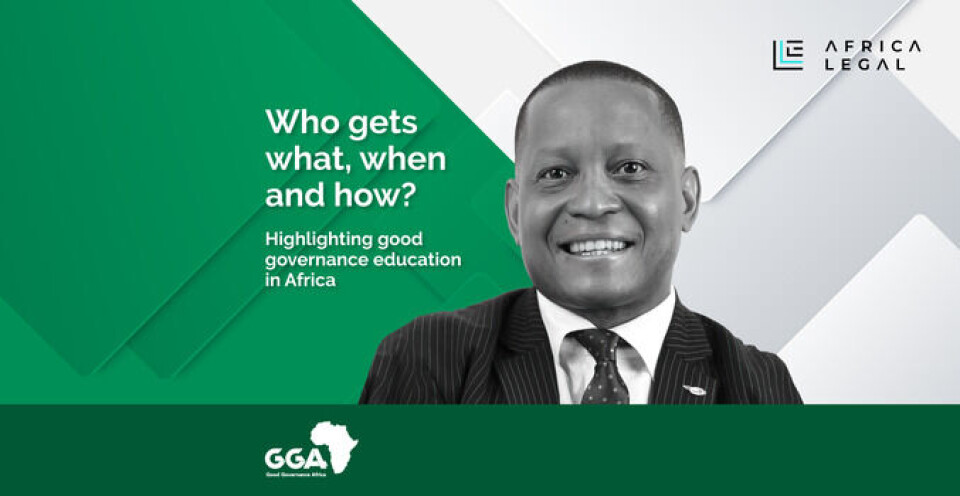Copyright : Re-publication of this article is authorised only in the following circumstances; the writer and Africa Legal are both recognised as the author and the website address www.africa-legal.com and original article link are back linked. Re-publication without both must be preauthorised by contacting editor@africa-legal.com
Who gets what, when and how?

Good governance is crucial to Africa’s development, and Chris Maroleng of Good Governance Africa says the private sector has a key role in this, writes Craig Sisterson.
Rather than relying on public sector bodies to carry the load when it comes to rectifying weak governance systems in Africa, it is the private sector that ultimately should act as the vanguard for the development of the continent, says governance expert Chris Maroleng.
“In many parts of Africa, we find that the continent is characterised by what we describe as ‘fragile jurisdictions’,” Maroleng explained. “Fragile jurisdictions are normally characterised by weak governance systems in the public sphere — the way in which regulators regulate the allocation of resources, i.e., who gets what, when, and how. We also see weak legislative processes and agencies meant to enforce these practices.”
Maroleng, Executive Director of Good Governance Africa (GGA), a research and advocacy organisation whose mission is to “enhance and upgrade governance” throughout the continent, notes that unfortunately private businesses and multinational corporations too often use “fragile jurisdictions” as an excuse to practise bad corporate governance. Instead, he believes they should raise the bar.
“We say good corporate governance is not just a good guy thing to do; it’s actually good for business,” Maroleng noted. “Introducing good governance will have a positive impact on socio-economic development and, I think, political stability around Africa.”
In simple terms, GGA sees good governance as being about “who gets what, when, and how” — the authoritative process around the allocation of resources. Transparency and accountability are key, with the public’s best interests outweighing the interests of political and economic elites.
GGA differs from other think tanks, explained Maroleng, because it doesn’t just focus on public sector responsibilities, but also recognises and promotes “the crucial importance of the private sector in developing Africa”. It doesn’t just “point fingers and criticise, it takes action to generate public-private partnerships and bring the private sector, via sound governance, into the mainstream of helping develop Africa, which they see as “the continent of the future”.
Maroleng highlighted that GGA has taken its core principles of transparency and accountability, and broken the broad topic of good governance into four main programme areas they focus on.
Governance Delivery and Impact monitors processes and institutions in matters such as elections and how the judiciary and legislature deliver services in the interests of citizens. Natural Resource Governance looks at processes that determine the allocation of Africa’s resources – an area that should lead to development and economic upliftment, but which can be rife with conflict, corruption and instability. Human Security and Climate Change recognises the threat climate change will have on human security in Africa. Governance Insights and Analytics uses quantitative methodologies to measure the impacts of governance.
Maroleng is also proud of GGA’s establishment of a Governance Performance Index, which empowers citizens to hold municipalities to account by giving them information about lack of delivery, and recommending things that can be done to enhance governance.
“It will not just be in the hands of governments to develop our continent. It must be in the hands of citizens and the private sector, in partnership with governments, underpinned by good governance, to create an enabling environment for the kind of progress we want to see.”
To join Africa Legal's mailing list please click here
